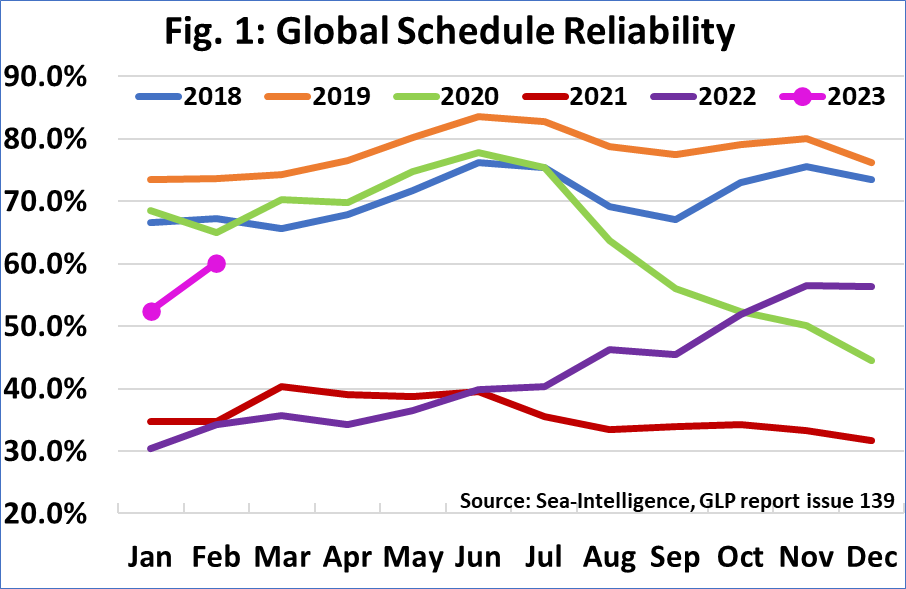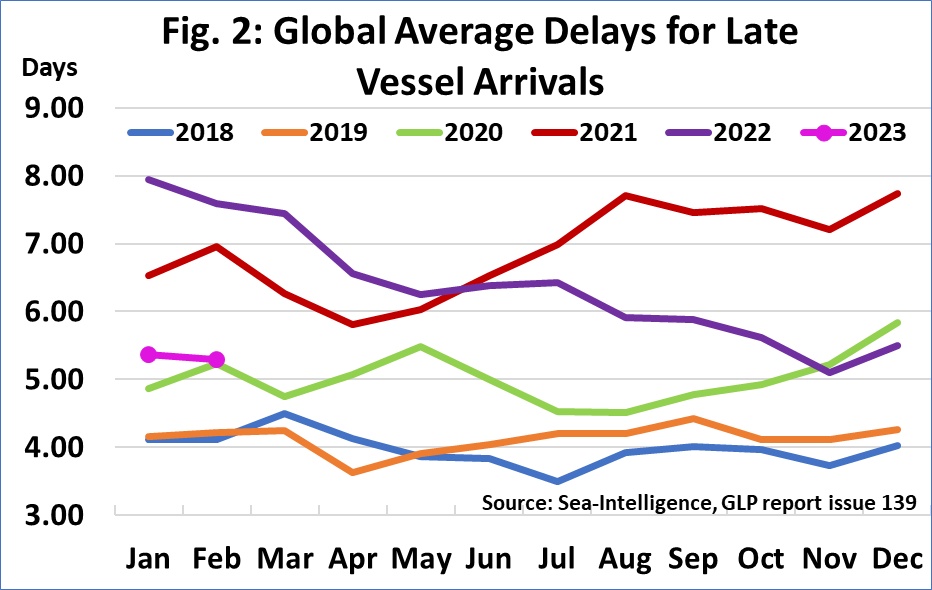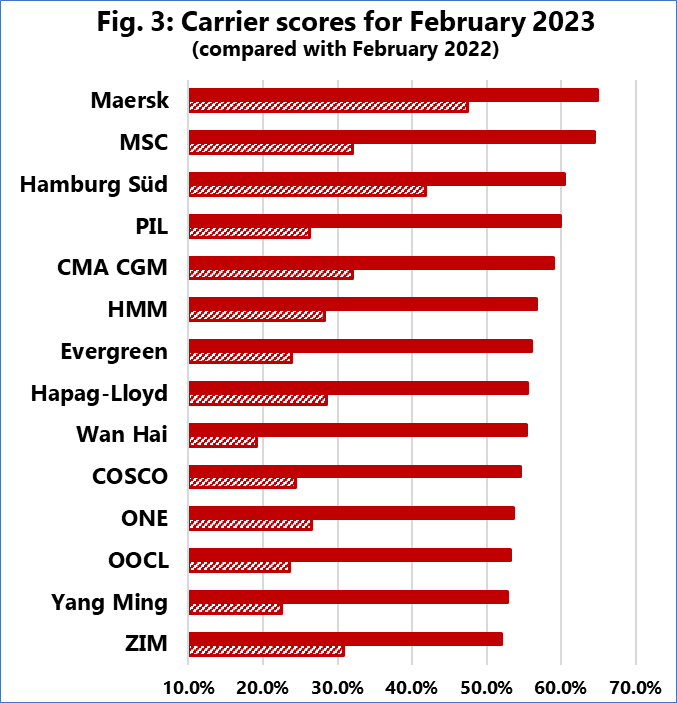Shipping schedule reliability increased sharply in February compared to the month prior, when it dipped slightly and reversed the uptrend seen at the end of 2022.
Sea Intelligence said schedule reliability for February was up by 7.7 percentage points month-over-month (M/M), reaching 60.2%.
Staggering increase in schedule reliability
On a year-on-year (Y/Y) level, schedule reliability was a staggering 26.0 percentage points higher.
For February, the average delay for late vessel arrivals also decreased, dropping by -0.07 days M/M in February 2023 to 5.29 days, and was down -2.30 days Y/Y.

"In relative terms, the average delay for LATE vessel arrivals is now closer to the 2019 level than to the highs of 2021-2022," Sea Intelligence said.
Maersk was the most reliable top-14 carrier in February 2023 with 64.9%, followed by MSC with 64.4%.
Sea Intelligence said that Hamburg Süd was the only other carrier with a reliability of over 60%, while the remaining carriers all had schedule reliability of 50%-60%.

"ZIM was the least reliable carrier in February 2023 with a schedule reliability of 52.0%," it added.
Top 14 carriers record increased schedule reliability

Nonetheless, the report said all top-14 carriers recorded an M/M increase in schedule reliability in February 2023, with PIL, ZIM, and Wan Hai all recording double-digit improvements.
On a Y/Y level, all carriers recorded double-digit improvements in schedule reliability in February 2023, with Wan Hai recording the largest improvement of 36.2 percentage points.